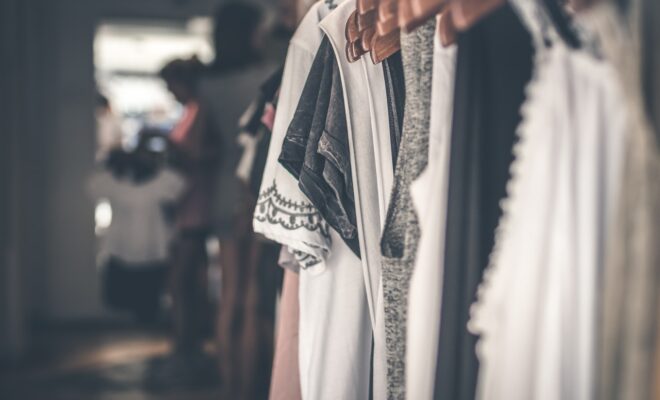
Has Lockdown made us more Sustainable with Our Fashion?
Lockdown has had a marked impact on just about every facet of life in the UK. It’s changed our travel habits, our eating habits, our grooming habits, and just about everything else. In some cases, it’s even forced us to make changes which we might consider desirable.
Take fashion. When the lockdown descended, few of us really appreciated that we wouldn’t be allowed to go shopping for several months. And thus, while we might have rushed out to replenish our supplies of dried pasta and toilet roll, we might not have extended the same courtesy to dresses, leggings and high-heeled shoes.
As such, we’ve had to largely make do with what’s in our wardrobes. The result of this has been a sharp contraction of what was a global market worth more than two trillion pounds. Fashion has gotten a poor reputation for being intrinsically wasteful. There’s a strong incentive to keep shelves filled, but not much of an incentive to eliminate waste. As such, manufacturers tend to generate a lot more stock than they need. Much of this ends up destroyed in order to keep prices artificially high. Burberry famously incinerated £90m worth of unsold stock over a five year period from 2013-2018. It’s the kind of behaviour that our descendants might look back on with incredulity. What were they thinking?
Influential figures from across the industry have recognised these excesses as fundamentally unsustainable, if not outright immoral. They’re calling for the industry to produce less, and for customers to buy things for their full price rather than waiting for a great deal in the sales.

This, of course, will only happen when consumers become cognisant of the environmental impact of their purchasing decisions. But when retailers make it their mission to gloss over these things at the point of purchase, this seems like a rather optimistic vision of human behaviour.
One factor that may well alter behaviour is money. While most Brits have managed to save more during lockdown, a looming economic downturn is likely to dampen spending, with luxury brands being viewed as long-term investments rather than impulse purchases. Customers may come to prefer that desirable cross-body bag that will last for years, rather than a cheap alternative that needs to be replaced every few months. Combined with scaled-back fashion weeks, greater regulation, and the rise of athleisure, the availability of disposable income is likely to play a huge role in shaping the industry over the next few years.
More fundamental change might come from an almost Gaian ethos among fashionistas and influencers. Vogue Italia’s deputy editor in chief, Sara Maino, recently claimed in an interview that: “We didn’t respect the planet until now and in a way this [pandemic] is a message and unfortunately it’s a very, very heavy message. Change had to be done. Everyone thought that the change would happen gradually, but that’s not the case. Change has to be done now, and done quickly.”
If this thinking is widespread and serious, then we should expect to see massive transformation rather than a reversion to our old shopping habits.


You must be logged in to post a comment Login